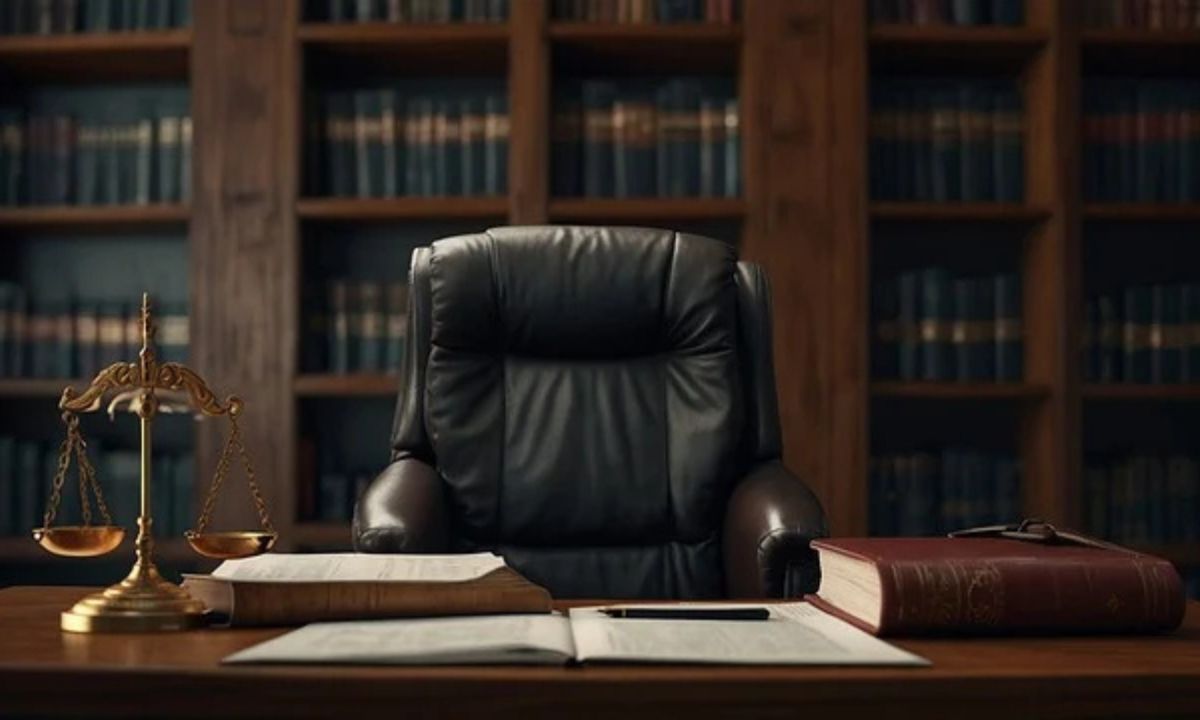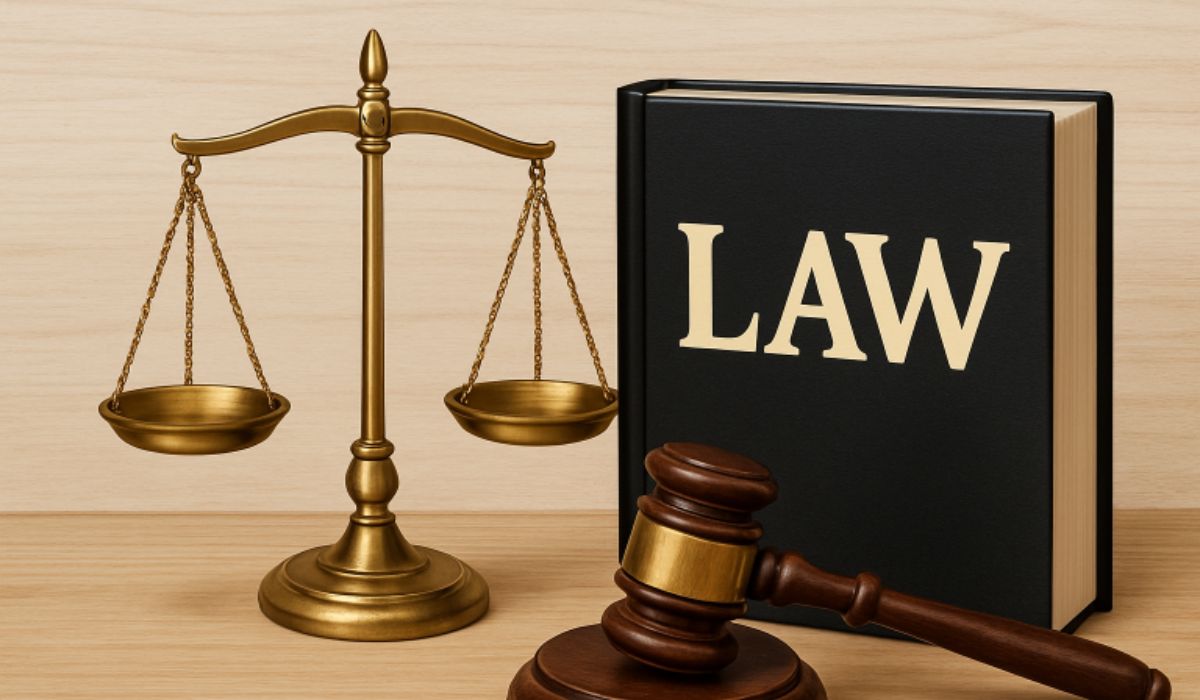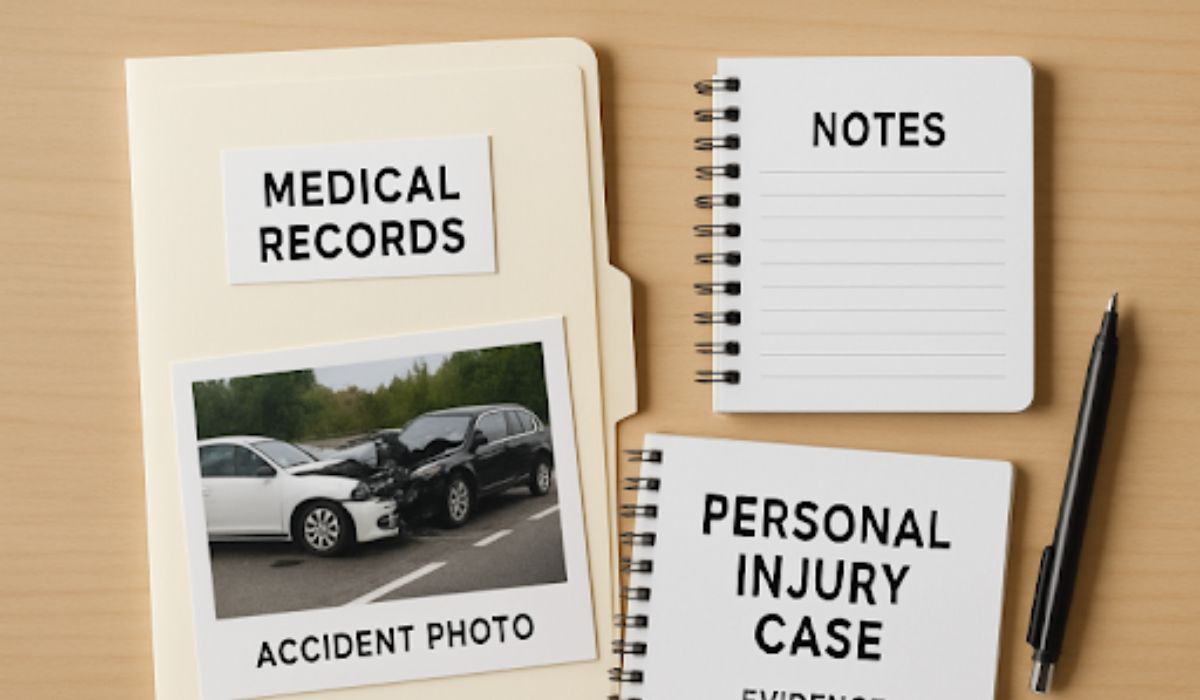Law
The Role of Mediators in Lemon Law Disputes

Key Takeaways:
- Mediators play a crucial role in resolving disputes efficiently and amicably.
- The mediation process can save time and resources compared to litigation.
- Understanding your rights and the mediation process can lead to more favorable outcomes.
- Mediation provides a neutral ground for both parties to discuss their issues and seek resolution.
Introduction to Lemon Law Disputes
Purchasing a new vehicle is usually a moment of excitement and anticipation. However, the reality for some consumers is that their new car is a “lemon,” a term used to describe vehicles with significant manufacturing defects that affect its use, safety, and value. Lemon law disputes often arise in such scenarios, creating conflict between consumers and manufacturers. Resolving these disputes through legal battles can be time-consuming and expensive. Instead, many parties opt for mediation—a more streamlined approach to resolve conflicts without court intervention. Engaging knowledgeable professionals such as Timothy Abeel’s California lemon law attorneys can offer crucial legal insights and support, making the mediation process smoother and more outcome-oriented.
What Is Mediation?
Mediation is an alternative dispute resolution (ADR) method where a neutral third party—the mediator—works with both sides to facilitate negotiation and assist in finding a mutually agreeable solution. Unlike litigation, where a judge dictates the outcome, mediation empowers the parties to craft their agreements. This method is particularly effective in lemon law cases as it focuses on collaboration rather than confrontation. The mediator serves as a facilitator, creating a safe space for both parties to communicate openly, identify their objectives, and work towards resolving misunderstandings amicably. This process maintains and often restores relationships between consumers and manufacturers, promoting cooperation and trust.
The Benefits of Mediation
Cost-Effective Resolution
The financial burden of going to court is one of the primary reasons many opt for mediation instead. Traditional court cases involve extensive legal fees, filing costs, and potentially substantial loss of time, all contributing to soaring expenses. On the other hand, mediation significantly reduces these costs by offering a more streamlined process that eliminates many formalities and rigid requirements associated with traditional litigation. This approach allows both parties to save money that would otherwise be spent on lengthy legal procedures, making it an economically sensible option.
Time-Saving Process
Time is a critical factor when dealing with vehicle defects. The longer a case prolongs in the judicial system, the longer the affected vehicle remains unusable or problematic. Mediation typically concludes within weeks, unlike litigation, which can extend over several months or even years due to court schedules and procedural requirements. This expediency is an advantage for consumers eager to resolve the dispute quickly, enabling them to focus on getting their vehicle repaired, replaced, or refunded as necessary.
Confidential and Collaborative
Confidentiality is a cornerstone of the mediation process, fostering an environment where parties can freely express their concerns without fear of vulnerability or public exposure. This privacy assurance allows more genuine and open dialogue, essential for effective conflict resolution. By focusing on collaboration, mediation encourages both parties to participate actively in the problem-solving process, seeking solutions that meet the needs of both the consumer and the manufacturer. Such cooperative interaction often results in more creative and tailored agreements than those handed down by a court, offering outcomes that benefit both sides.
Understanding the Mediation Process
The structured nature of mediation begins with a preliminary meeting where the mediator explains the ground rules and sets expectations for the sessions. Each party can then present their case, outlining their perspectives and grievances. During these discussions, the mediator helps clarify issues and encourages constructive dialogue. Through various sessions, the mediator facilitates communication, helping both sides identify underlying interests and explore options for resolution. The goal is to reach a voluntary settlement acceptable to both parties. This process seeks resolution of the immediate dispute and aims to restore and maintain a cordial relationship between the involved parties.
The Role of Mediators
Mediators are essential in ensuring the mediation process is effective and fair. They are skilled in negotiation and conflict resolution techniques, which they use to guide discussions and help participants stay focused on their interests rather than positions. Mediators maintain neutrality, offering no judgment or legal advice, which is crucial for fostering an environment of trust. In lemon law disputes, experienced mediators with industry knowledge can further elucidate technical issues surrounding vehicle defects, aiding parties in addressing the more complex aspects of their disagreements.
Guidance from Lemon Law Attorneys
While mediators facilitate the process, lemon law attorneys provide essential legal support by ensuring consumers are well-represented and informed about their rights. Engaging with experts can provide strategic advantages during mediation. Attorneys help articulate clients’ concerns, ensuring their interests are properly communicated and advocated during discussions. They also provide expert insight into potential legal ramifications, helping clients make informed decisions that reflect both their immediate needs and long-term goals.
Achieving a Successful Outcome
Preparation is key to a successful mediation. Both parties must gather all relevant information, such as repair records, correspondence, and warranties, to frame their arguments accurately. A readiness to compromise with flexibility in their approach can positively impact the mediation result. Understanding that the aim is not to “win” but to reach a mutually beneficial agreement transforms the adversarial attitude into cooperation and problem-solving, which is the essence of mediation.
Conclusion
Lemon law disputes, while challenging, do not always have to culminate in courtroom confrontations. Mediation offers a valuable path, providing a platform for efficient and amicable resolution. By embracing the benefits of mediation, understanding its processes, and seeking professional guidance, consumers and manufacturers can successfully resolve disputes while preserving their relationships. The ultimate goal is to achieve satisfactory solutions that both parties can confidently agree upon, steering clear of prolonged battles and focusing instead on sustainable resolutions.
Law
How Road Safety Measures Can Reduce Personal Injury Risks

Ensuring road safety is critical in reducing personal injury risks and making communities safer for everyone. Road traffic accidents are a leading cause of preventable injuries and deaths worldwide. By implementing data-driven safety measures and leveraging support from key organizations like the Ward Law Group, we can significantly reduce the rates of accidents and harm on our roads. Whether you are a driver, cyclist, pedestrian, or policymaker, understanding these strategies is essential for building a safer environment.
Governments, businesses, and individuals all play roles in this collective effort. Enacting sound legislation, improving infrastructure, and introducing technology-driven solutions have proven to be cornerstones in mitigating accident severity and occurrence. Each safety intervention—from seat belt enforcement to innovative warning systems—serves a distinct, crucial purpose in protecting lives on the move.
The ripple effects of robust road safety policies extend beyond direct injury reduction. Enhanced road safety boosts overall community well-being, minimizes healthcare costs, and fosters an environment where people can travel with greater confidence and security.
With commitments and innovations driving change, ongoing vigilance and collaboration remain the cornerstones of progress. Exploring the importance of legislation, speed management, traffic barriers, red light technology, corporate leadership, and the Vision Zero methodology demonstrates how comprehensive efforts deliver real-world results.
Importance of Seat Belt Legislation
Seat belt legislation stands as one of the most effective ways to reduce traffic fatalities. Data from the National Highway Traffic Safety Administration (NHTSA) show that seatbelts saved nearly 15,000 lives in the U.S. in a single year. For occupants involved in car crashes, using a seatbelt can reduce the risk of fatal injury by 45% and moderate to severe injury by 50%. As such, strict seat belt laws and enforcement campaigns play a pivotal role in improving road safety outcomes.
Consistent public education campaigns, paired with high-visibility law enforcement, have led to increased compliance and awareness about seatbelt usage. States with primary seat belt laws—meaning officers can ticket motorists solely for not wearing a seatbelt—demonstrate higher usage rates and lower injury statistics than states with secondary laws or no seatbelt requirements.
Impact of Reducing Speed Limits
Speeding increases both the likelihood and severity of crashes. Reducing speed limits, especially in urban and residential areas, offers one of the most direct routes to lowering injury rates. For example, the Chilean capital of Santiago experienced a notable decrease in work-related transportation incidents after reducing urban speed limits. Lower speeds translate to shorter stopping distances, giving both drivers and pedestrians more time to react and directly curbing the occurrence and severity of collisions.
Data from the Centers for Disease Control and Prevention (CDC) continually highlights excessive speed as a significant risk factor for road fatalities worldwide. Implementing managed speed zones near schools and busy intersections further safeguards vulnerable road users, such as children and older adults.
READ ALSO: How to Handle Personal Injury Cases Effectively
Role of Traffic Barriers
Physical traffic barriers, including guardrails, crash cushions, and median dividers, are integral in keeping vehicles on the roadway and shielding them from hazardous obstacles. These barriers are especially vital near high-speed roads or dangerous curves, as well as in areas with high foot traffic, such as school zones and pedestrian crossings. By physically separating opposing lanes of traffic or demarcating restricted areas, barriers reduce the incidence of high-impact head-on collisions and provide essential protection for both motorists and non-motorists.
Studies in road design reveal that judicious placement and maintenance of barriers can help reduce collision forces, minimize the severity of crashes, and ultimately save lives. Municipalities that invest in modern traffic barrier systems often experience decreases in both the number and severity of vehicular accidents.
Effectiveness of Red Light Cameras
Intersection-related accidents caused by red light violations account for a significant portion of serious urban injuries. Red light camera enforcement has been proven to mitigate these risks by deterring repeat offenders. Research published by the Insurance Institute for Highway Safety (IIHS) indicates that automated red light enforcement reduces injury crashes by approximately 25% at controlled intersections. However, it may lead to a slight increase in rear-end crashes due to sudden stops.
Overall, communities adopting these systems typically experience lower rates of T-bone and side-impact collisions—accidents that often lead to severe or fatal injuries. Transparency, public support, and fair enforcement are crucial in maximizing the benefits of these automated systems.
Infrastructure-Based Warning Systems
Advanced digital signage and warning systems are transforming how drivers interact with dynamic roadway conditions. Real-time alerts about upcoming hazards, pedestrian crossings, sharp curves, or impending changes in traffic lights can enhance driver decision-making and enable timely braking or evasive maneuvers. Studies demonstrate that well-implemented warning technologies reduce accident rates by enhancing situational awareness and reducing human error.
As transportation infrastructure becomes increasingly interconnected, such warning systems provide a foundation for integrating future innovations, such as connected vehicle technology and fully automated driving support.
Corporate Initiatives in Road Safety
The movement for safer roads increasingly features collaboration from the private sector. Dozens of organizations, including well-known brands such as Uber, Lyft, and Honda, are piloting projects and funding community-based safety solutions. Initiatives range from installing improved school zone crosswalks to pioneering enhanced driver notification technologies.
As part of the U.S. Department of Transportation’s “Call to Action” campaign, these groups demonstrate that corporate responsibility can be leveraged to magnify positive change on a national scale. Public-private partnerships are poised to continue evolving, driving both policy and technical progress for safer streets.
Vision Zero Approach
Vision Zero is an ambitious, systems-based strategy championed by a growing number of U.S. cities and international communities. This approach reimagines roads to eliminate all traffic deaths and severe injuries—a goal built on the principle that no loss of life on the road is acceptable. Cities such as Mountain View, California, and Lancaster, Pennsylvania, are among those committed to eliminating fatal collisions by 2030.
By placing the burden of safety on road design and policy rather than individual behavior alone, Vision Zero policies encourage integrated solutions that account for human error while offering layers of systemic protection for all road users.
Conclusion
Comprehensive road safety efforts, ranging from robust seatbelt legislation and thoughtful speed management to cutting-edge infrastructure and strategic corporate engagement, have the power to transform our roads. By continuing to innovate, reinforce, and collaborate—as individuals, organizations, and communities—we move closer to the reality of truly safe and injury-free travel for future generations.
YOU MAY ALSO LIKE: How to Handle Personal Injury Cases Effectively
Law
6 Legal Defenses That Can Help Beat Assault Charges

Assault charges are among the most serious allegations an individual can face in the criminal justice system. The potential consequences go far beyond a short stint in jail or a temporary fine—a conviction can affect your employment prospects, relationships, reputation in the community, and even your rights for years to come. In some cases, an assault conviction can severely hamper your ability to secure housing or participate in certain professions. Given these lifelong ramifications, mounting a thorough defense is of utmost importance. Understanding the possible legal defenses available is the foundation for an effective strategy. If you’re currently navigating the legal complexities of an assault case, consulting with experienced legal professionals at martinlawfirmpc can be crucial to protecting your rights from the outset and ensuring you make informed decisions every step of the way.
In the legal realm, not all assault accusations are straightforward. Various circumstances may render actions non-criminal or justifiable. Key defenses against assault accusations include self-defense and alibis, and understanding these options is crucial for effectively navigating such charges. Assault cases require the prosecution to prove every element beyond a reasonable doubt; hence, establishing reasonable doubt regarding the accused’s intentions or actions is central to defense strategies. This can involve questioning the victim’s credibility or demonstrating legal justifications for the defendant’s behavior. The success of these defenses depends on individual case facts and local laws, underscoring the importance of consulting with a qualified attorney.
Self-Defense
Self-defense is one of the most recognized and commonly used justifications in criminal courts for cases involving assault. If you can establish that you were in imminent danger of bodily harm and had no reasonable means of escape, you may claim that your use of force was justified. The court will examine a multitude of factors, such as the severity and immediacy of the threat, whether a non-violent escape was possible, the degree of force used, and the comparative size, age, and strength of the individuals involved. For example, if someone threatens you with a weapon and you strike them to protect yourself, this could be deemed reasonable self-defense. However, if your response is grossly disproportionate to the threat—for instance, using lethal force against an unarmed person during a minor altercation—the defense may not succeed. The court’s analysis usually centers on whether your beliefs and your actions were reasonable in the heat of the moment, which can be a nuanced and fact-specific inquiry.
READ ALSO: Safeguarding Digital Transactions: The Role of Anti-Fraud Tools in Secure E-Commerce
Defense of Others
This defense is closely related to self-defense, but instead of protecting yourself, you are protecting another person from imminent harm. To successfully argue the defense of others, you need to show that you reasonably believed someone else was about to suffer unlawful physical injury and that your intervention was necessary to prevent that harm. The response must be proportional to the perceived threat; excessive or unnecessary force could render this defense invalid. Courts will also consider whether a reasonable person, observing the incident from your perspective, would have acted similarly. This defense is often invoked when a bystander steps in to stop an assault or when a parent or guardian intervenes to protect a child. It is essential to demonstrate not only your reasonable perception of danger but also that your intervention was the only viable option to prevent injury to the other person.
Defense of Property
In certain situations, you may lawfully use force to protect your property from theft, destruction, or unlawful intrusion. Most jurisdictions, however, impose significant limits on this defense. The law generally permits the use of only reasonable and non-lethal force to prevent the immediate, unlawful taking or damaging of property. For instance, you might push someone who is attempting to steal your purse to prevent the theft, but using force resulting in serious injury or death over a property dispute would rarely be justified. The nuances of property defense laws can vary substantially from state to state, so knowing your local statutes is crucial. In a few jurisdictions, “stand your ground” or “castle doctrine” laws provide greater leeway for individuals to defend their homes or personal spaces. Because the boundaries of this defense can be complicated, seeking the guidance of a qualified criminal defense attorney who understands your state’s specific laws is essential for asserting this defense effectively.
Consent
The consent defense is less common in assault cases but is critical in circumstances where both parties agreed to the conduct that led to the alleged harm. This scenario can happen during contact sports, friendly sparring, or other mutually agreed-upon contests. In such cases, the prosecution must prove that the alleged victim’s consent was not genuine or was obtained through coercion, fraud, or deception. Evidence supporting your defense could include text messages, video recordings, signed waivers, or credible witness testimony. However, there are limits to what can be consented to; for example, in most jurisdictions, one cannot consent to severe bodily injury. Additionally, courts may distinguish between acts that occur within the agreed-upon rules and those that go beyond them. To help understand the complexities of the consent defense, including its boundaries and limitations, you may consult well-established resources, such as those available through Nolo.
Lack of Intent
Many assault statutes require prosecutors to show that the accused acted intentionally or with a specific purpose to cause harm or fear of harm. This element distinguishes assault from an accidental or involuntary act. If you can offer convincing evidence that your actions were unintentional or that they have been misunderstood, you may be able to defeat the charges. Accidentally bumping into someone in a crowded space or causing injury while engaged in a lawful activity could serve as examples of a lack of intent to commit assault. The most effective evidence in these cases might include eyewitness statements, footage from security cameras, or even the prosecution’s own records that fail to establish an intentional act. Highlighting inconsistencies in the prosecution’s version of events can also be very effective in undermining allegations of malicious intent.
Alibi
The alibi defense asserts that you were not present at the scene of the alleged crime, making it impossible for you to have committed the offense. This is a factual defense that relies on evidence such as credible witness testimony, time-stamped receipts, GPS data, or security camera footage showing your whereabouts at the relevant time. A strong and well-documented alibi can create insurmountable doubt in the prosecution’s case, potentially leading to dismissal or acquittal. Promptly gathering evidence—before memories fade or records are lost—is crucial, as the strength of your alibi rests mainly on the quality and reliability of your supporting documentation. If you plan to assert an alibi, it is essential to inform your attorney as soon as possible so that subpoenas or witness interviews can be arranged.
Conclusion
Understanding the full spectrum of defenses to assault charges is the best way to ensure your rights are protected and that your case receives the attention and approach it deserves. Every situation is unique, and what works in one case may not be appropriate in another. This is why a tailored defense strategy, developed in conjunction with experienced legal counsel, is so critical. Whether your situation calls for self-defense, defense of others, lack of intent, or even an alibi, knowing the law and how it applies to your particular facts can make all the difference. For more practical advice, guidance, and examples of additional defense strategies, review resources such as FindLaw and consult with a reputable defense attorney to discuss your best course of action as soon as possible.
YOU MAY ALSO LIKE: Ensuring Robust Digital Security: Best Practices for Businesses
Law
What Evidence You Need To Win A Personal Injury Case

Key Takeaways
- Comprehensive evidence is critical for a successful personal injury claim.
- Begin collecting key documentation immediately after the incident occurs.
- Medical records, official reports, and witness statements are foundational to proving your case.
- Visual and digital evidence add persuasive power and often clarify disputed facts.
- Documenting the economic and personal consequences of your injuries ensures all aspects of your loss are compensated.
- Expert advice can support your claim, especially in contentious or complex matters.
If you or a loved one is pursuing a personal injury claim, the evidence you gather will likely be the cornerstone of your success. Everything from medical records to eyewitness accounts can not only validate your injuries and losses but also increase your credibility before insurance adjusters and in court. As you prepare, knowing exactly what evidence to collect—and how to preserve it—can make a dramatic difference in your outcome. For tailored legal guidance on evidence collection, visit blakefriedmanlaw.com.
Documenting your injuries and the circumstances of the accident is a critical step. Not only does this provide the foundation for your claim, but it also ensures that nothing is left to a judge’s or jury’s imagination. Each type of evidence has its own strategic role in building a robust case and countering disputes over fault or liability. Following best practices in gathering and organizing these materials can dramatically boost your negotiation power and ability to secure fair compensation.
Being proactive with your documentation, from saving hospital records to taking scene photos and gathering witness contacts, can mean the difference between a successful claim and a denied one. Each piece of evidence serves to paint a full, accurate picture of your experience and losses, putting you in a strong position to reach a fair resolution.
Medical Records and Bills
Medical records provide the foundation for virtually every personal injury claim. You’ll need to gather every piece of medical documentation related to your injuries, including:
- Hospital admissions and discharge notes
- Physician and specialist reports
- Imaging studies (X-rays, MRIs, CT scans)
- Prescriptions, treatment recommendations, and invoices
Having detailed medical records helps establish the connection between the accident and your injuries, as well as the necessary cost of ongoing care. These documents are central to proving not only your injuries but the scale of your economic and non-economic damages.
Accident Reports
Official accident reports add credibility to your personal account of the incident. Depending on where your injury occurred, seek out:
- Police reports for vehicle accidents
- Incident reports from businesses or property owners
- Workplace injury documentation
Reports often include official observations, initial assessments of fault, and statements from other involved parties, laying an objective foundation for your claim. The more thorough the report, the harder it becomes for insurers or defense attorneys to dispute your narrative.
Witness Statements
Eyewitness accounts can offer unbiased insight into what actually happened. Be sure to gather:
- Full contact details from all potential witnesses
- Written or recorded statements while events are still fresh
- Consistency in witness recollections
Strong, timely witness statements often provide the necessary corroboration in personal injury cases. They add integrity and can substantiate your version of events against opposing arguments.
READ ALSO: How to Get Car Insurance by MyTechnicalHindi.com: Easy Guide
Photographic and Video Evidence
Visual documentation is crucial and often irrefutable. Capture:
- Images and video of the accident scene, showing hazards or environmental conditions
- Photos of injuries over time
- Evidence of damage to vehicles or property
- Any surveillance or traffic camera footage if available
Photos and videos help reconstruct the accident and can show the impact more compellingly than words alone. If necessary, request access to any relevant surveillance footage from local businesses or authorities.
Digital Evidence
Modern cases often hinge on digital history as well. Preserve:
- Text messages or emails related to the accident
- Relevant social media posts
- GPS logs, time-stamped entries, or call records
Digital evidence can corroborate timelines, prove when and where accidents occurred, or clarify confusion in other statements, especially when key facts are disputed.
Financial and Employment Records
If your injuries have impacted your employment or ability to earn a living, financial records are vital for demonstrating the resulting losses. Collect:
- Recent pay stubs and annual income statements
- Employment contracts or wage agreements
- Records of missed workdays, sick leave, or disability claims
- Employer verification of your role and earnings
These allow you to prove direct economic damages and, if necessary, your diminished earning capacity as a result of the injury.
Expert Testimonies
In many cases, bringing in experts can clarify complex issues that laypersons might not fully understand. Depending on your case, you may need testimony from:
- Physicians or specialists explaining your injuries
- Accident reconstructionists to analyze causes
- Economists to calculate your financial losses
Expert testimony can be crucial in contested or high-value cases, bridging the knowledge gap for those determining compensation or liability.
Personal Documentation
Your own record-keeping can humanize your claim. Maintain a personal journal tracking:
- Pain levels, medical appointments, and physical difficulties
- Mental health impacts such as anxiety, depression, or trauma
- Consequences for daily life, family obligations, and recreational activities
Personal documentation can powerfully illustrate non-economic damages—those losses that don’t come with a price tag but have a dramatic impact on your life.
Final Thoughts
Collecting comprehensive evidence is the cornerstone of a successful personal injury claim. From medical records and accident reports to eyewitness statements, photographs, digital data, and expert testimonies, each piece contributes to building a compelling case that accurately reflects your injuries, losses, and the circumstances of the incident. Being proactive, organized, and thorough not only strengthens your credibility with insurance companies and in court but also maximizes the compensation you are entitled to receive.
Equally important is maintaining personal documentation of pain, emotional impact, and daily life disruptions, as these details help illustrate the full extent of your damages. By following best practices for evidence collection and seeking expert guidance when necessary, you position yourself to navigate complex claims confidently and secure a fair outcome. In essence, careful documentation today lays the foundation for justice and recovery tomorrow.
YOU MAY ALSO LIKE: How to Handle Personal Injury Cases Effectively
-

 Home Improvement1 year ago
Home Improvement1 year agoEasy Ways to Clean and Maintain Your Foam Play Mat
-

 Celebrity1 year ago
Celebrity1 year agoWho Is Andrew Santino Wife? The Full Story
-

 Tech1 year ago
Tech1 year agoExplore iZoneMedia360 .Com Features & Benefits
-

 Entertainment1 year ago
Entertainment1 year agoRemembering Melanie Olmstead Yellowstone’s Unsung Hero
-

 Uncategorized1 year ago
Uncategorized1 year agoPrairie Dog Guide: Habitat, Behavior, and Conservation
-

 Celebrity1 year ago
Celebrity1 year agoA Deep Dive into Jeremy Allen White Movies and TV Shows
-

 Apps & Games1 year ago
Apps & Games1 year agoThe Pizza Edition Games: A Perfect Slice of Fun and Flavor
-

 Business1 year ago
Business1 year agoHow Influencersginewuld Shapes the Future of Branding





